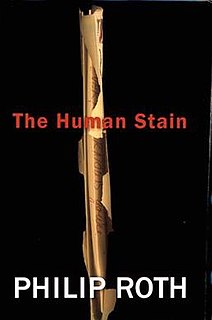
The Human Stain (2000) is a novel by Philip Roth set in late 1990s rural New England. Its first person narrator is 65-year-old author Nathan Zuckerman, who appeared in several earlier Roth novels, and who also figures in both American Pastoral (1997) and I Married a Communist (1998), two books that form a loose trilogy with The Human Stain. Zuckerman acts largely as an observer as the complex story of the protagonist, Coleman Silk, a retired professor of classics, is slowly revealed.
Nathan Zuckerman is a fictional character created by the writer Philip Roth, who uses him as his protagonist and narrator, a type of alter ego, in many of his novels.

Patrick George Hentgen is an American former professional baseball pitcher, and currently a special assistant with the Toronto Blue Jays organization. He played in Major League Baseball (MLB) for the Blue Jays, St. Louis Cardinals, and Baltimore Orioles.
William Thomas Harris III is an American writer, best known for a series of suspense novels about his most famous character, Hannibal Lecter. The majority of his works have been adapted into films and television, the most notable being The Silence of the Lambs, which became only the third film in Academy Awards history to sweep the Oscars in major categories.

Joshua Gibson was an American Negro league baseball catcher. Baseball historians consider Gibson to be among the very best power hitters and catchers in the history of any league, including Major League Baseball (MLB). In 1972, he became the second Negro league player to be inducted in the National Baseball Hall of Fame.
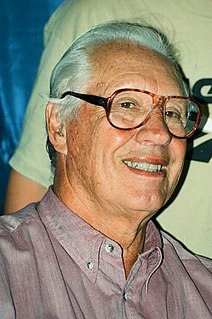
Robert William Andrew Feller, nicknamed "The Heater from Van Meter", "Bullet Bob", and "Rapid Robert", was an American baseball pitcher who played 18 seasons in Major League Baseball (MLB) for the Cleveland Indians. Feller pitched from 1936 to 1941 and from 1945 to 1956, interrupted only by a four-year engagement in the Navy. In a career spanning 570 games, Feller pitched 3,827 innings and posted a win–loss record of 266–162, with 279 complete games, 44 shutouts, and a 3.25 earned run average (ERA).

Henry Ramón Blanco is a Venezuelan professional baseball coach and former player. He is currently the bullpen coach for the Washington Nationals. He played as a catcher in Major League Baseball from 1997 to 2013, appearing for the Los Angeles Dodgers, Colorado Rockies, Milwaukee Brewers, Atlanta Braves, Minnesota Twins, Chicago Cubs, San Diego Padres, New York Mets, Arizona Diamondbacks, Toronto Blue Jays, and Seattle Mariners. He later served as quality assurance coach for the Cubs. Although a light-hitting player, he was regarded as one of the best defensive catchers in Major League Baseball.
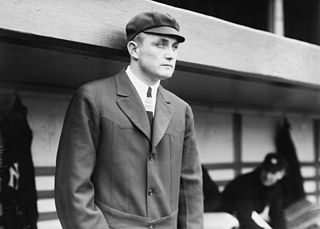
William George Evans, nicknamed "The Boy Umpire", was an American umpire in Major League Baseball who worked in the American League from 1906 to 1927. He became, at age 22, the youngest umpire in major league history, and later became the youngest to officiate in the World Series at age 25.
Ellis Weiner is an author and humorist who has previously worked as an editor of National Lampoon and a columnist for Spy Magazine. His humor has also appeared in The New Yorker, Paris Review, and The New York Times Magazine.
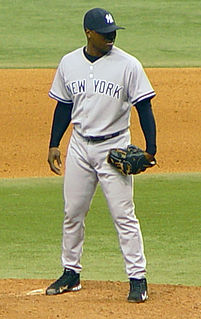
Thomas Flynn Gordon, nicknamed "Flash", is a former Major League Baseball right-handed pitcher.
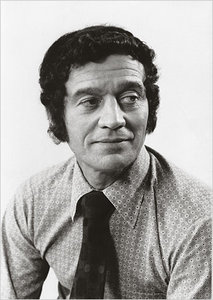
Anatole Paul Broyard was an American writer, literary critic, and editor from New Orleans who wrote for The New York Times. In addition to his many reviews and columns, he published short stories, essays, and two books during his lifetime. His autobiographical works, Intoxicated by My Illness (1992) and Kafka Was the Rage: A Greenwich Village Memoir (1993), were published after his death. He had moved to Brooklyn, New York, with his family as a youth.
Theodore Philip Toynbee was a British writer and communist. He wrote experimental novels, and distinctive verse novels, one of which was an epic called Pantaloon, a work in several volumes, only some of which are published. He also wrote memoirs of the 1930s, and reviews and literary criticism, the latter mainly via his employment with The Observer newspaper.

Man at the Crossroads (1934) was a fresco by Diego Rivera in New York City's Rockefeller Center. It was originally slated to be installed in the lobby of 30 Rockefeller Plaza, the main building of the center. Man at the Crossroads showed the aspects of contemporary social and scientific culture. As originally installed, it was a three-paneled artwork. A central panel depicted a worker controlling machinery. The central panel was flanked by two other panels, The Frontier of Ethical Evolution and The Frontier of Material Development, which respectively represented socialism and capitalism.
Leonard Joseph Okrie was an American catcher and coach in Major League Baseball. Born in Detroit, Okrie stood 6'2" (188 cm) tall, weighed 185 pounds (84 kg), and batted and threw right-handed.
Sheldon "Chief" Bender was an American player and manager in minor league baseball and a scout, scouting director and farm system director in Major League Baseball who spent 64 years in the game.

The Humbling is a novel by Philip Roth published in the fall of 2009 by Houghton Mifflin Harcourt. It is Roth's 30th book and concerns "an aging stage actor whose empty life is altered by a 'counterplot of unusual erotic desire'."

Michael Thomas Roth is an American professional baseball pitcher who is currently a free agent. He previously played in Major League Baseball (MLB) for the Los Angeles Angels of Anaheim and Chicago Cubs.
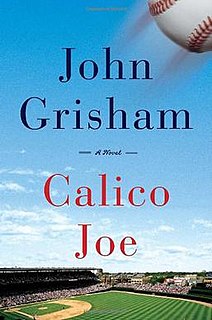
Calico Joe is John Grisham's first baseball novel. It was released on April 10, 2012.





















